Death of the ambassador. Andrei Karlov became the fourth diplomat of this rank, killed abroad
The murder of Andrei Karlov shocked the entire world community. The profession of a diplomat is dangerous, but still not so often ambassadors of states are victims of planned killings. For example, for all Russian history Andrei Karlov became the fourth ambassador killed by the murderers. The Russian Empire, the Soviet Union, the Russian Federation experienced very different and difficult times, including times of wars and revolutions, terrorist activities in the North Caucasus, but the murders of Russian ambassadors were never distributed.
As is known, Alexander Sergeevich Griboedov was the first Russian ambassador killed by fanatics in Persia. By evil coincidence, the head of the Russian state, Vladimir Putin, 19 of December, was heading to watch Griboyedov's immortal comedy, “Woe from Wit”, when he was informed of the tragic accident in the Turkish capital. View comedy, of course, had to be interrupted. Recall that Alexander Sergeevich Griboyedov (1795-1829) killed 30 on January 1829, when a crowd of religious fanatics broke into the Russian embassy in Tehran and killed all the people there. Only the secretary of the embassy, Ivan Maltsov, managed to survive. The massacre at the embassy in Tehran went down in history as one of the most egregious attacks on diplomatic missions.
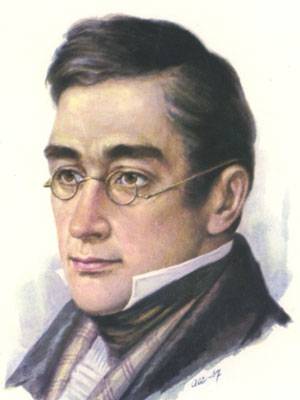 As a result of the massacre in the Russian embassy, then 37 people who were in the embassy were killed. But among the attackers there were casualties - 19 people died. The body of Alexander Griboyedov was delivered to the Russian Empire and buried in Tiflis. Thirty-five Cossacks from the embassy convoy, who died during the defense of the Russian mission, were buried in Tehran - in the courtyard of the Armenian church of Surb-Tatevos. The Persian Shah put a lot of effort in order to make amends to the Russian emperor. Shah’s grandson, Tsarevich Hosrev-Mirza, arrived in Russia with rich gifts. Nicholas I, who was then at the imperial throne, was presented with many jewels, including the famous diamond "Shah", which once belonged to the Great Moguls, and then ended up in the treasury of the Persian shahs.
As a result of the massacre in the Russian embassy, then 37 people who were in the embassy were killed. But among the attackers there were casualties - 19 people died. The body of Alexander Griboyedov was delivered to the Russian Empire and buried in Tiflis. Thirty-five Cossacks from the embassy convoy, who died during the defense of the Russian mission, were buried in Tehran - in the courtyard of the Armenian church of Surb-Tatevos. The Persian Shah put a lot of effort in order to make amends to the Russian emperor. Shah’s grandson, Tsarevich Hosrev-Mirza, arrived in Russia with rich gifts. Nicholas I, who was then at the imperial throne, was presented with many jewels, including the famous diamond "Shah", which once belonged to the Great Moguls, and then ended up in the treasury of the Persian shahs. After the murder of Griboyedov in the history of the Russian diplomatic service there were no such high-profile crimes for almost a century. Despite the numerous wars that were fought by the Russian Empire, Russian ambassadors were not killed abroad. The next blatant incident occurred as early as May 1923 of the year, during the Soviet period of national history. 10 May 1923 of the year at 21 an hour of 10 minutes shots were heard at the restaurant of the Hotel Cecil in Lausanne. An unknown young man opened fire on three men sitting at one of the tables. One of those sitting died, two others were injured. As it turned out, the representative of the RSFSR and the Ukrainian SSR in Italy, Vaclav Vorovsky, was killed. His assistant, 19-year-old Maxim Divilkovsky and ROSTA agency journalist Ivan Arens sat at the table with him.
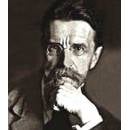
After the murder, the shooter gave himself weapon the head waiter of the place and asked to call the police. The murderer of the Soviet ambassador was one Maurice Conradi, a former Russian officer of Swiss origin, the George Knight, a participant in the First World War and the Civil War. Konradi served in the rank of captain in the famous Drozdovskaya division - in the post of a regimental adjutant of Colonel Anton Turkul, who commanded the 2 officer general of Drozdovsky rifle regiment. During the Civil War, the Conradi family suffered greatly at the hands of the Bolsheviks. Maurice Conradi’s father Maurice Conradi Sr. was severely beaten during interrogation in the Cheka and soon died. Uncle - a merchant of the 1-th guild - the Bolsheviks shot as hostage. One of Maurice Conradi’s brothers also died. Therefore, the officer was going to take revenge for the family and wanted with this purpose to commit the demonstrative murder of a representative of the Soviet leadership.
At the beginning of the 1920's Conradi emigrated to Switzerland, proving his Swiss origin. Here in 1923, he met with his former colleague, staff captain Arkady Polunin, to whom he outlined his plans to kill any of the Soviet leaders or diplomats. Polunin proposed killing foreign commissar Georgy Chicherin, who was in Berlin in April 1923. But when Conradi arrived in Berlin, Chicherin and the Soviet delegation accompanying him had already left the city. Therefore, Conradi returned to Switzerland and decided to kill Vatslav Vorovsky, one of the veterans of the revolutionary movement who had participated in it since 1894 and performed the most important tasks of the Bolshevik leadership, including the organization of financing the Bolshevik Party. From 1921, Vorovskiy served as plenipotentiary representative of the RSFSR and the Ukrainian SSR in Italy. A jury acquitted Konradi and Polunin, after which the Soviet Union broke off diplomatic relations with Switzerland.
In the Soviet Union, the streets, towns, and ships were named after Vorovskiy, Vladimir Mayakovsky dedicated his poem to him. The Soviet state viewed the murder of Vorovskiy as an act of political terror aimed at intimidating Soviet citizens and all Communists. Vorovskiy became a symbolic figure, the personification of a Soviet diplomat, putting the interests of the country above his own and dying at his post.
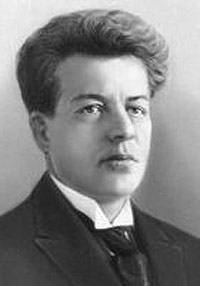 7 June 1927 was fatally wounded at the Warsaw railway station by Peter Voikov (1888-1927) - USSR plenipotentiary in Poland. Unlike Vorovskogo, Peter Voikov was a figure with a less peaceful biography. He was a member of the Yekaterinburg Military Revolutionary Committee, then - in the Ural Soviet. It was during Voikov’s work in Yekaterinburg that the family of former Emperor Nicholas II was murdered. Therefore, many opponents of the Bolsheviks personified Voikov with the murder of the royal family and, accordingly, considered him not just a political figure of Soviet Russia, but an “executioner” involved in the cruel destruction of the Romanovs. There were even evidences of “eyewitnesses”, for example - a certain Besedovsky, a diplomat - defector, who claimed that Voikov himself boasted of his personal participation in the shooting of the royal family and demonstrated a ring with a ruby, which he had taken off from one of the corpses. Although these evidences did not find documentary evidence, and not one of the real participants in the execution of the Romanov family testified to the presence of Pyotr Voykov in the firing squad, the point was spread among the “white” emigration that Pyotr Voykov was responsible for organizing the killing of the royal family.
7 June 1927 was fatally wounded at the Warsaw railway station by Peter Voikov (1888-1927) - USSR plenipotentiary in Poland. Unlike Vorovskogo, Peter Voikov was a figure with a less peaceful biography. He was a member of the Yekaterinburg Military Revolutionary Committee, then - in the Ural Soviet. It was during Voikov’s work in Yekaterinburg that the family of former Emperor Nicholas II was murdered. Therefore, many opponents of the Bolsheviks personified Voikov with the murder of the royal family and, accordingly, considered him not just a political figure of Soviet Russia, but an “executioner” involved in the cruel destruction of the Romanovs. There were even evidences of “eyewitnesses”, for example - a certain Besedovsky, a diplomat - defector, who claimed that Voikov himself boasted of his personal participation in the shooting of the royal family and demonstrated a ring with a ruby, which he had taken off from one of the corpses. Although these evidences did not find documentary evidence, and not one of the real participants in the execution of the Romanov family testified to the presence of Pyotr Voykov in the firing squad, the point was spread among the “white” emigration that Pyotr Voykov was responsible for organizing the killing of the royal family. Actually, it was this circumstance that caused the cruel reprisal of a Soviet diplomat. At a train station in Warsaw, 19-year-old Boris Koverda shot him - a Belarusian youth who worked for the Belarusian Word newspaper. Together with the editor of this newspaper A.V. Pavlyukevich and the Cossack captain M.I. Yakovlev Boris Koverda and conceived to crack down on Voikov to avenge the murder of the royal family. On the morning of June 7, 1927, Boris Koverda arrived at the Warsaw Railway Station. He waited until the car of the Soviet embassy, in which the envoy Voikov and the embassy official Grigorovich, arrived, arrived at the station.
Peter Voikov got out of the car and headed to the station building, where he was to meet with the diplomat Rosengolz, who was heading to Moscow. When Rosengolts and Voicov left the station building, Koverda followed the diplomats. At that moment, when Rosengolts entered the train platform, Koverda began shooting at Voikov. Both Rosengolts and Voikov had their pistols with them and fired back. Rosengolts shot at Coverda, but did not hit. Voikov ran across the platform and began shooting back from Coverda. Koverda shot back. Two of the six bullets fired by Coverda hit Peter Voikov. The Soviet plenipotentiary, in spite of the combat experience of youth, conducted in the fighting squads of the Bolsheviks, did not fall into Coverda. The wounded Voikov was taken to the hospital, where he died an hour later. Koverda did not resist the police and immediately surrendered, stressing that he had shot Voykov as an agent of the Communist International, and not as an employee of the Soviet diplomatic mission.
Unlike the process over Konradi, who killed Vorovsky in Lausanne, the process over Coverda was much more stringent. The sentence was pronounced in just eight days - life-long hard labor. I was not able to soften the judges, even the young age of the gunman. The Polish prosecutor stressed that the defendant needed to endure the most severe punishment, since he shot the envoy of another state, who enjoyed diplomatic immunity and was sure that on the land of Poland he was not in danger. However, when the hype caused by the murder of the Soviet ambassador subsided, Coverde's sentence was revised and changed to fifteen years ’imprisonment. After serving only ten years, Koverda was released in 1937 year. As for the deceased Voikov, he was buried near the Kremlin wall and, like Vorovskiy, made a symbolic figure — streets, enterprises, schools of the Soviet Union were named after Voikov.
For a long time, Voikov became the latest domestic diplomat killed in a deliberate assassination outside the Soviet Union / Russia. Soviet diplomats of this level were not killed even during the Second World War. There were no murders of the Soviet ambassadors during the years of the Cold War, including the period when Soviet troops entered the territory of Afghanistan.
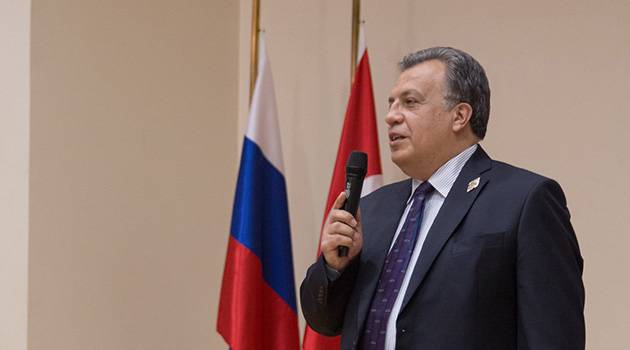
The Ambassador of the Russian Federation to Turkey, Andrei Karlov, became the fourth national diplomat of this rank, killed abroad. In Turkey, Andrei Karlov worked from 2013 of the year, and before that, from 9 July 2001 to 20 December 2006, served as Ambassador Extraordinary and Plenipotentiary of the Russian Federation to the DPRK. This was not an accident - Andrei Karlov was considered one of the largest Russian specialists in Korea. He graduated from the eastern branch of MGIMO and spoke Korean. In 2007-2009 He was Deputy Head of the Consular Department of the Ministry of Foreign Affairs of Russia, and in 2009-2013. headed the consular department of the Russian diplomatic department. Appointed ambassador to Turkey, Andrei Karlov took office in a very difficult period. It was at this time that events occurred in Ukraine, the war intensified in Syria, Russian-Turkish relations deteriorated, and an attempted coup d'état took place in Turkey itself. Nevertheless, Andrei Karlov faithfully carried out his diplomatic duties.
At the same time, at least twice in the last ten years, Russian ambassadors in foreign countries have been the victims of attacks by intruders, although these attacks, fortunately, were not fatal for diplomats. Thus, in 2006, two unknown persons attacked the Ambassador of the Russian Federation in Kenya, Valery Egoshkin. One of them hit the ambassador with a knife in the back. Egoshkin was seriously injured, but he survived and even continued to work at his post after passing the necessary medical measures. In 2011, the Russian ambassador in Qatar, Vladimir Titorenko, and two of his subordinates attacked directly at the airport in the Qatari capital, Doha, and were attacked by airport security officers and police. When passing through customs, they demanded that diplomats, in violation of the Vienna Convention, enlighten diplomatic mail with the help of an X-ray machine. As the ambassador and his staff protested against this procedure, a scuffle ensued. Physical force was applied to the ambassador, after which Vladimir Titorenko was forced to undergo a long treatment, underwent three operations to eliminate the gap and detachment of the retina of the eye.
One can hardly expect that the assassination of Ambassador Andrei Karlov in Ankara will be followed by a serious rift in Russian-Turkish relations, which not so long ago were resumed and reached a more or less acceptable level. But it is difficult to deny the share of the guilt of the Turkish side in this terrible incident. First, it is the receiving party that is responsible for the security of foreign diplomatic missions and their employees. Secondly, the ambassador was attacked by a Turkish law enforcement officer, and this raises the question of what kind of people work in the modern Turkish police and intelligence services and what are their links with international terrorist organizations operating in the Middle East.
The Minister of Internal Affairs of Turkey, Suleiman Soilu, spoke about Altintash, who was shooting at the ambassador. He reported that Altyntash was just 22 of the year. He was born in 1994 in the province of Aydin and graduated from a police school in Izmir, after which he served in the police special forces in Ankara for two and a half years. By the way, the fact that radical fundamentalists have strong positions in the Turkish police has been known for a long time. In contrast to the army, which was considered a secular citadel, sympathizers of radical organizations began to enlist in the police of Turkey as early as the 1990s.
Turkish President Recep Erdogan hurried to call Russian President Vladimir Putin and express his condolences in connection with the assassination of the Russian ambassador. In addition, Erdogan spoke out with curses against those who were involved in the murder of a diplomat and stressed that he would not allow any forces to spoil relations with Russia. It is possible that the attack on the ambassador was carried out precisely with the aim of destroying the recently established Russian-Turkish relations.
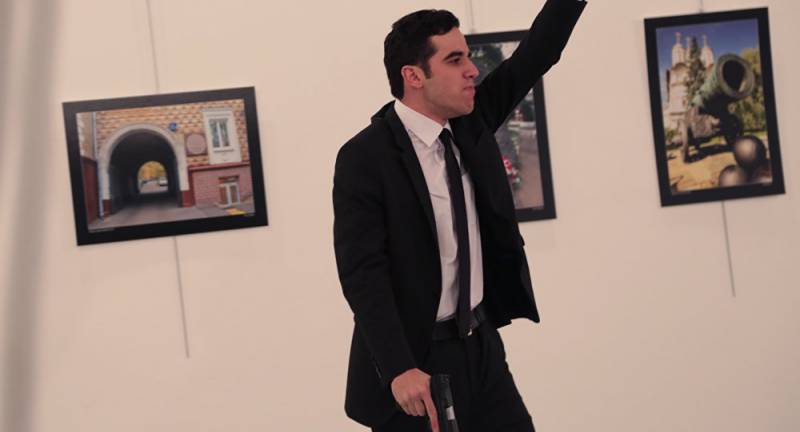
Information